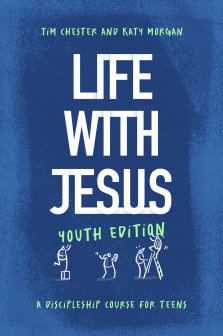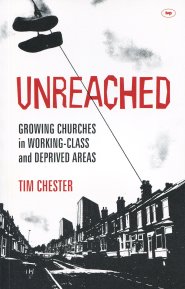In the introduction to his book, Tim Chester invites you to think of the thriving evangelical churches in your area. He proposes that the chances are they’re in the ‘nice’ areas of town and their leaders are likely to be ‘middle class’. Tim goes on to say that he once attended a lecture at which the speaker showed a map of his home city, Sheffield. The council wards were coloured different shades, according to a series of social indicators: educational achievement, household income, benefit recipients, social housing, criminal activity, and so on. Slide after slide showed that the east side of the city was the needy, socially deprived half, compared to the more prosperous west.
Where were the churches? Counting all the various tribes of evangelicalism, the large churches were all on the west side. The working-class and deprived areas were not being reached with the gospel. Tim quotes supporting evidence from Mez McConnell at the Niddrie Community Church in Edinburgh who noted that, of the fifty worst housing schemes in Scotland, half have no church, and most of the others only have a dying church. In our deprived and depressed inner city communities, very few have an evangelical witness. This book is about reaching those unreached areas.
Using research conducted for Tearfund in 2007, Tim shows that churchgoing in the UK is a middle-class pursuit. Adults in social grades AB (professionals, senior and middle management) are over-represented among both regular and occasional churchgoers. Meanwhile, adults of social grade C2 and D (skilled, semi-skilled and unskilled manual) have the highest proportion of non-churched. Julian Rebera from New Life Church in Brighton concludes, ‘There are very few churches on deprived estates. Those that exist are not attended by people from the estates, but by people outside the estates. And very few people from the estates travel out to our city-centre, largely white, middle-class churches.’
Yet, he says, it was not always like this. The Great Awakening of the 1700s was largely a working-class movement. Although its leaders were middle class, the Establishment treated their open-air preaching with scorn. Instead, it was working-class people who flocked to hear John Wesley and George Whitefield. Wesley organized converts into ‘classes’ and ‘societies’. These were lay-led, often by working-class or lower-middle-class individuals. As Robert Wearmouth says:
“Methodism gained its greatest successes among the socially distressed and ostracised among the labouring masses. Never claiming to be a class or partisan movement, always emphasising the universal love of God, its most urgent appeals were addressed to the common people . . . The higher classes in English society were scarcely touched by Methodist influence, but the working men and women were profoundly affected.”
The Industrial Revolution saw increased social stratification. It was during this time that middle-class and working-class identities began to emerge. And in the late eighteenth and early nineteenth centuries, evangelicalism appealed disproportionately to skilled artisans, according to historian David Bebbington. Skilled artisans made up 23% of the population, but 59% of evangelical non-conformists fell into this category. Both unskilled labourers and the middle classes were underrepresented in Nonconformist ranks. Methodists made a greater impact on labourers, but the proportion of Methodists who were labourers (16%) was still just below the proportion in society as a whole (17%).
Tim’s introduction to his book goes further. By the mid-1800s, perhaps half the UK population attended church. But contemporaries remarked that the labouring population was largely absent. Many congregations in mining areas were predominantly working class, but the majority of the working classes were not worshippers. In the late nineteenth century, the trend towards class-specific suburbs accelerated, and church attendance varied accordingly. Middle-class Ealing had 47% attendance, while working-class Fulham had 12%. Religious practice was becoming more directly associated with class. This was accentuated by the upward mobility of churchgoers. By the 1930s, almost half of Methodist members were in non-manual occupations, and by the 1970s it was three-quarters.
Based on this introduction to his book ‘Unreached’, Tim Chester sets out to answer the question, ‘So why have we evangelicals been so ineffectual at reaching the urban poor, despite our origins?’ And make some solid proposals about what can be done now to restore that reach.
Trustpilot




